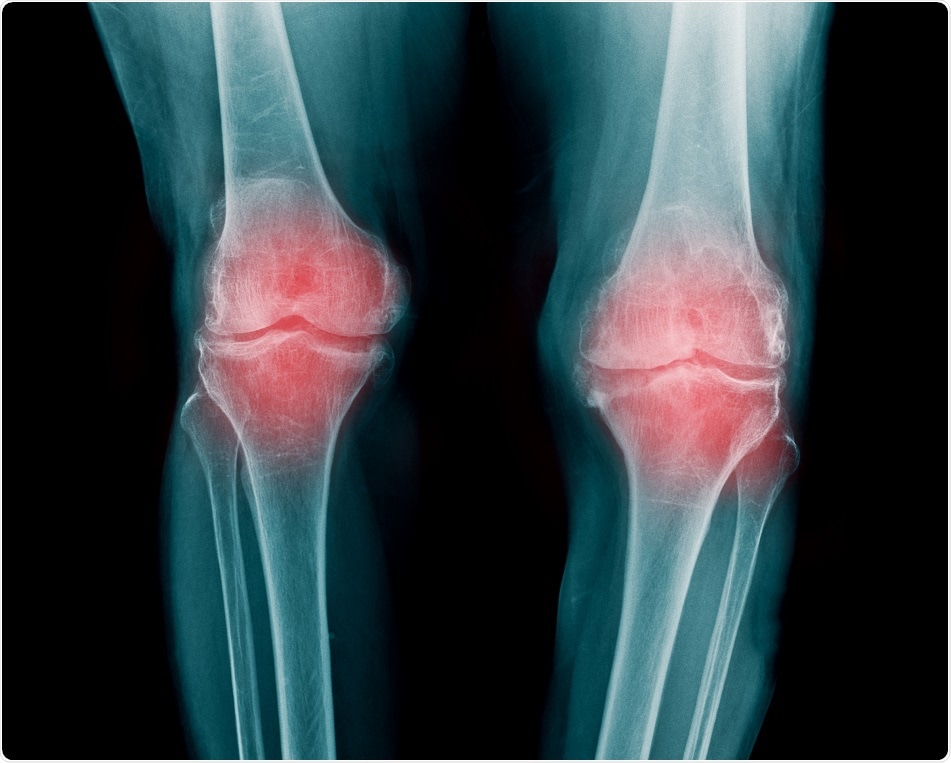Nov 29 2017
A new MRI study presented yesterday at the annual meeting of the Radiological Society of North America (RSNA) stated that obese people who lose a significant amount of weight can slow down the degeneration of their knee cartilage, but only through exercise and diet or only by diet.

Credit: Tridsanu Thopet/ Shutterstock.com
According to the Centers for Disease Control and Prevention, obesity is considered as a major root cause of osteoarthritis, a chronic joint disease that generally affects adults over 60 years. Osteoarthritis most commonly affects the knee joint, and in many cases, this condition worsens until the total replacement of knee becomes necessary.
Once cartilage is lost in osteoarthritis, the disease cannot be reversed.”
Alexandra Gersing, M.D., Department of Radiology and Biomedical Imaging, University of California
It is very important for people with early signs of osteoarthritis, or people at risk of developing the disease, to slow down the cartilage degeneration, as cartilage loss is irreversible. To slowdown the degeneration of cartilage, weight loss has been successful, but it was unclear whether the method involved for losing weight made a difference.
The team investigated joint abnormalities and cartilage degeneration for a period of 96 months among obese and overweight individuals, who had lost weight through differing methods and who had maintained a stable weight throughout the research.
This nationwide research study, which mainly focused on the treatment and prevention of knee osteoarthritis, included 760 men and women from Osteoarthritis Initiative, who had a body mass index greater than 25.
The participants, who either had mild to moderate osteoarthritis or had the disease's risk factors, were further divided into two groups: one with 380 participants who had lost weight and another control group of 380 participants with no loss in weight.
The weight-loss group was again divided on the basis of weight loss method: exercise alone, diet alone, and exercise and diet.
In the beginning, the research team used MRI for quantifying knee osteoarthritis at the 48th and 96th months.
Cartilage degeneration over the 96 months was remarkably lower in the weight loss group than in the control group. However, this result was present only in patients who lost weight via diet alone or with diet and exercise.
Even though participants who only exercised lost as much weight as patients in the other two subgroups, this indicated no significant difference in cartilage degeneration when compared with the control group.
"These results add to the hypothesis that solely exercise as a regimen in order to lose weight in overweight and obese adults may not be as beneficial to the knee joint as weight loss regimens involving diet," said Dr. Gersing.
Source: